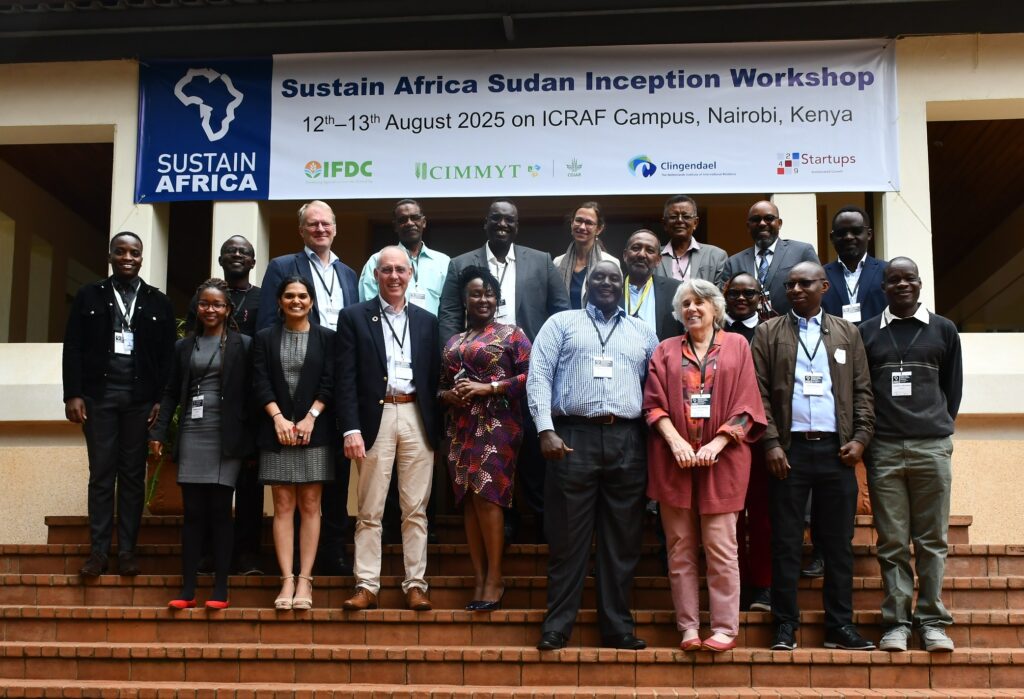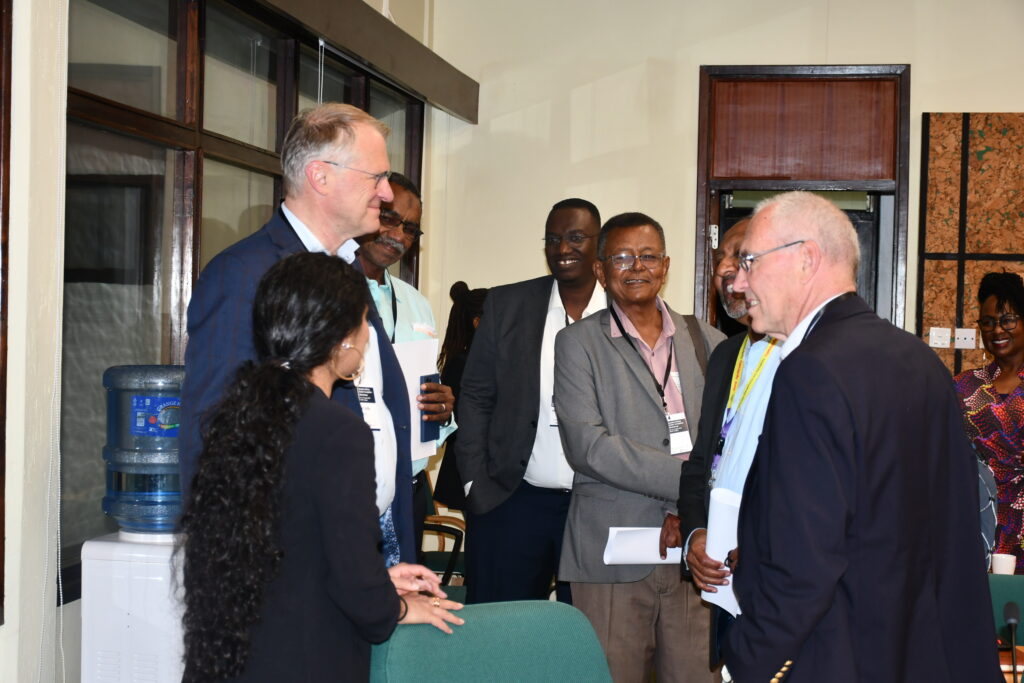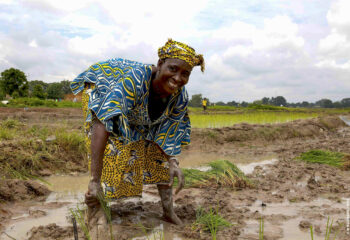
Sudan’s ongoing food crisis, worsened by a sharp decrease in fertilizer availability, calls for urgent attention. In a milestone event addressing this critical situation, 17 members of the Sustain Sudan project convened for a two-day inception workshop at the World Agroforestry (ICRAF) campus on August 12-13 in Nairobi, Kenya.
With representatives from the International Fertilizer Development Center (IFDC), Sustain Africa, the International Maize and Wheat Improvement Center (CIMMYT), the Clingendael Institute, and 249Startups, these project members established an implementation framework for Sustain Sudan through innovative, private sector-driven strategies.
“The key to this project’s success will be aligning its work to source and finance fertilizer for the country and ensuring that that fertilizer is bought and distributed widely.”
Ben Valk, Project Director for Sustain Africa, opened the workshop by explaining that Sustain Sudan was developed in 2025 to address the country’s steep decline in fertilizer availability, which has fallen from 500,000 metric tons (mt) annually to just 50,000 mt in recent years.
Sustain Sudan’s mission is to work through Sudan’s established network of agro-dealers, distributors, and financial institutions to supply 260,000 mt of discounted fertilizers and critical agricultural inputs to 2 million farming households, directly supporting the cultivation of 5 million hectares of farmland.
As Valk explained during his presentation, “The key to this project’s success will be aligning its work to source and finance fertilizer for the country and ensuring that that fertilizer is bought and distributed widely.”
Anette Hoffmann, Senior Research Fellow at the Clingendael Institute, outlined the challenges Sudan faces in obtaining aid despite representing some of the world’s most significant humanitarian crises. With 25 million people severely malnourished and 14 million displaced, international aid has struggled to reach those most in need because of a protracted, violent conflict that began two years ago and has spread across Sudan.
Despite ongoing conflict, Sudan retains vast agricultural potential, and its farmers will ultimately be responsible for feeding a population of 45 million. With humanitarian aid unable to meet the scale of the crisis, Sustain Sudan is designed to restore farmers’ access to inputs and strengthen local markets.
Hoffmann emphasized both the risks and opportunities for Sustain Sudan. While the conflict creates enormous security, financial, and political challenges, Sudan’s agricultural resources and still-active private sector make market-led approaches not only viable but essential. She stressed that the project must be implemented in ways that avoid exacerbating political tensions while seizing the opportunity to demonstrate how private sector solutions can complement humanitarian efforts.
After these opening remarks, participants discussed several core issues over the course of the workshop’s two days. Attendees underscored the vital importance of security planning, risk management, and compliance with donor and local regulations. As a result, regular risk monitoring, legal framework development, and compliance with Sudanese and international standards will be integrated across all project activities. All partners agreed to contribute to risk and security monitoring, with strategies aligned to each organization’s policies.

Another important consideration workshop participants addressed was the project’s potential market impact, as increased fertilizer availability could help reduce local prices. Capturing baseline and post-intervention price data will be crucial.
A final discussion point concerned additional goals for Sustain Sudan. While fertilizer access remains the priority of Sustain Sudan, investment in seeds and crop protection was also discussed, particularly for regions such as Darfur and Kordofan.
Workshop participants then worked together to draft two implementation plans: a Fertilizer Sourcing and Input Financing Plan and a combined Implementation and Security Plan. These elements will be consolidated into a unified project plan to ensure coherence across all activities.
The Sustain Sudan workshop concluded with agreement on immediate next steps. Partners will finalize the overarching communications, risk management, and monitoring frameworks, and review the draft plans to clarify responsibilities and deliverables.
Sustain Sudan’s interventions are expected to raise fertilized crop yields by at least 40% compared to non-fertilized crops, delivering vital gains for food security across the country. At the heart of Sustain Sudan’s methodology is a commitment to market integrity, conflict sensitivity, and financial derisking, achieved through careful partnerships and ongoing data-driven monitoring.
The inception workshop successfully aligned project partners to this shared vision for Sustain Sudan, drawing on lessons from Sustain Africa, international expertise, and Sudan’s resilient private sector. This project will be positioned to make a significant contribution to addressing the country’s food crisis.




